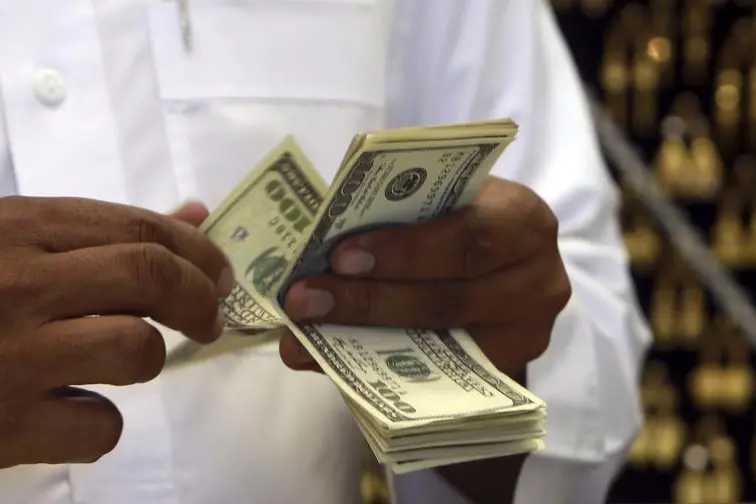PHOTO
SINGAPORE: The U.S. dollar was set for a second week of broad gains on Friday, with even a rate hike in Japan unable to dislodge it, as investors figure U.S. rates are high and not falling yet.
The Swiss National Bank delivered the biggest surprise of a week crammed with central bank meetings, cutting its main interest rate and citing the strength of the franc as a reason.
The franc, which in real terms has been rising for years, dropped more than 1% overnight to 0.8894 per dollar, its weakest in four months, and slid to a nine-month low on the euro nudging it closer to parity.
The Bank of Japan announced an historic shift out of negative short-term rates and longer-run yield caps, but it was so well telegraphed that the yen fell on the news and was last a whisker from multi-year lows at 151.63 per dollar.
The U.S. Federal Reserve left its funds rate on hold between 5.25% and 5.5% this week and stuck with projections for three cuts by year's end.
But it said it will not start moving until it has more confidence that inflation is sustainably falling toward 2%. Market expectations for U.S. rate cuts increased after that but only very slightly.
About 80 basis points of cuts are now priced in for this year - much lower than the 160 or so that had been priced in at the start of the year.
"With this tweaking and pricing out of the number of Fed cuts, we see the dollar support slowly beginning to come back into the picture," said Patrick Hu, G10 currency trader at Citi.
"This is one of the key factors in why dollar/yen did not fall but it actually started to trickle higher."
Dollar/yen is up 1.6% this week and near levels that prompted Japanese intervention in 2022, which has investors nervous but also looking for other currencies to buy and pocket the "carry", or difference between interest rates.
Euro/yen hit its highest since 2008 this week at 165.37 and the Aussie broke above 100 yen for the first time since 2014.
Against the dollar the euro has slipped about 0.2% this week into middle of a range it has held for a year at $1.0862. Sterling fell overnight after the Bank of England left interest rates unchanged, this time backed by the two hawkish committee members who'd previously voted for a hike.
For the week sterling is down 0.6% at $1.2661. The Australian and New Zealand dollars moved in opposite directions this week.
Thursday data showed New Zealand slipped into a technical recession, while Australian jobs surged ahead.
The Aussie/kiwi cross is up 0.8% this week. The Australian dollar has eked a 0.2% gain on the U.S. dollar to $0.6572 for the week, while the kiwi has plumbed four-month lows and lost about 0.6% to $0.6046.
The U.S. dollar index is up for a second week in a row, climbing 0.5% to 103.94. Bitcoin is eyeing its sharpest weekly drop since January as crypto markets have taken a step back from a powerful rally this week - though it will trade through until Sunday.
It was last at $65,800. Other morning moves in Asia were slight. The yen had no major reaction to mixed Japanese inflation data. Retail sales figures in Britain and Canada are due later in the day. (Reporting by Tom Westbrook; Editing by Muralikumar Anantharaman)





















